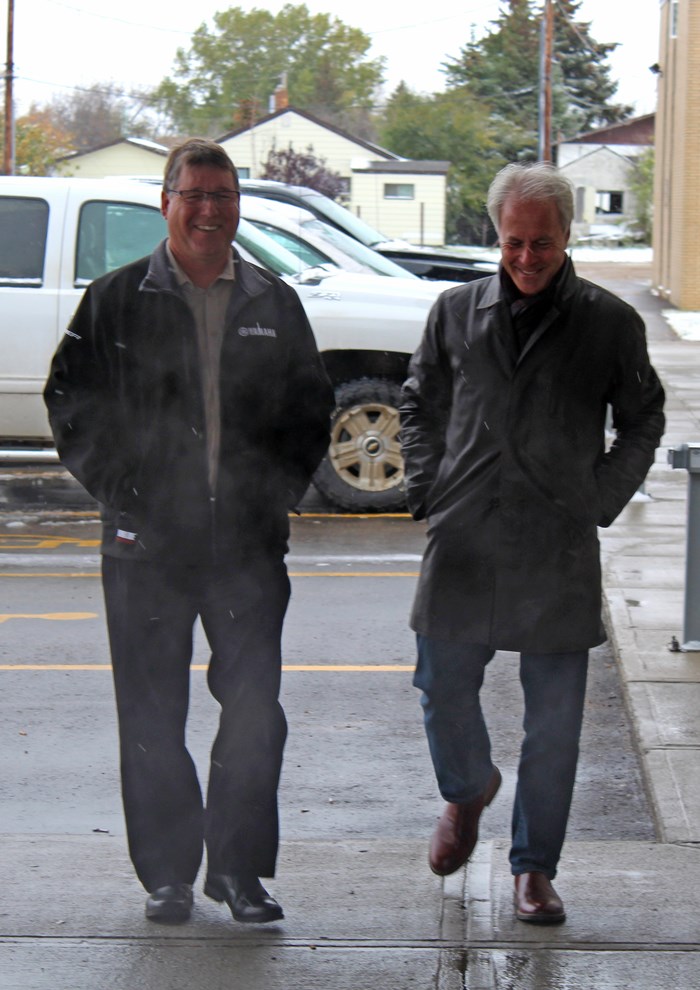We drove around and we saw where the canola plants are and how the rail lines come up to the crushing plants and so forth. When you live in a city like I do, you take all of that for granted. You get your bottle of canola oil and you just use it. It’s good to actually see where it comes from and where stuff happens.
— Howard Green
Last week, a full house of Yorkton’s business leaders at St. Mary’s Ukrainian Catholic Cultural Centre were inspired by the Yorkton Chamber of Commerce’s Annual Business Dinner.
The keynote for the October 5 event, business journalist Howard Green, kept the crowd engaged throughout his speech, said Juanita Polegi, executive director of the Chamber.
Of course, you do not get to be the face of a national business broadcasting enterprise without having some degree of charisma.
Green started out with CBC’s Venture before co-founding the Business News Network (BNN) in 1999 and anchoring its flagship show, Headline with Howard Green, for six years.
Now an award-winning documentary filmmaker and author, Green penned the best-selling 2013 book Banking on America: How TD Bank Rose to the Top and Took on the USA.
A new book, co-authored by Charles Bronfman called Distilled: A Memoir of Family, Seagram, Baseball, and Philanthropy is due this month.
Green told Yorkton This Week he hoped the Yorkton audience took away two messages from his talk, to beware predictions, but respect cycles.
The people who make economic predictions, he explained, are inherently prone to being wrong so caution is required when making business decisions based on short-term prognostication.
“It’s not to say they’re bad people, it’s not to say they’re bad at what they do, it’s just extremely hard to predict economic events,” he said. “I mean, who predicted Brexit? Who predicted the 2008 crash?”
On the other hand, cycles can present challenges, but also opportunities.
“While predictions are hard to make and there’s a high probability of being wrong, cycles exist and they exist for very powerful reasons.”
He cited examples such as the 34-year downward trend in interest rates and the boom and bust nature of the energy business.
Green very much enjoyed the Chamber event.
“It was a very warm evening, I felt very welcomed,” he said. “Everybody was really kind, and nice and welcoming and the food was fantastic. I’ve never had better cabbage rolls.”
Another highlight of his visit was a tour of the city the following day with Kelly Price, member of the Chamber board and manager of the Yorkton branch of Great Western Bank.
“It’s really interesting to see the workings of an agricultural community,” Green said. “We drove around and we saw where the canola plants are and how the rail lines come up to the crushing plants and so forth. When you live in a city like I do, you take all of that for granted. You get your bottle of canola oil and you just use it. It’s good to actually see where it comes from and where stuff happens.”
Both Green and Polegi were particularly pleased with the response of two tables of students, one from Yorkton Regional and one from Sacred Heart, sponsored for the event by CN. The students were rapt and even asked questions, Green noted.
“The students seemed to really enjoy the presentation, so we’re really grateful to CN for providing that opportunity,” Polegi said.



